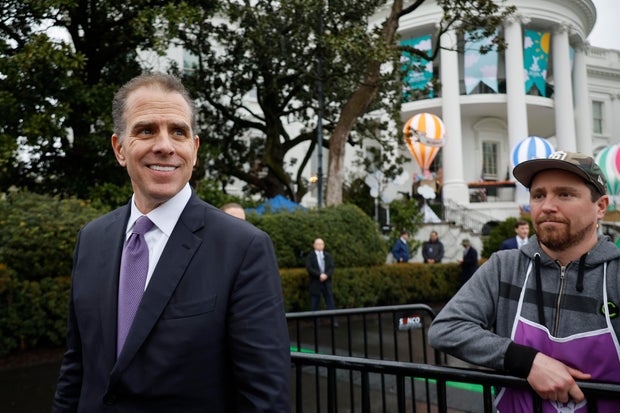Jury selection in Hunter Biden’s federal gun trial begins Monday in Delaware, as he faces three felony charges stemming from his alleged illegal purchase and possession of a firearm in 2018 while he was a drug user.
Biden was indicted by a federal grand jury in September after a diversion agreement for a felony gun offense and a plea deal related to misdemeanor tax charges unraveled when U.S. District Judge Maryellen Noreika questioned whether the agreement would allow him to avoid potential future charges.
Hunter Biden’s attorneys decried the charges and argued they were “unconstitutional” and “unprecedented,” as well as in violation of the diversion agreement they maintain was still legally binding and valid.
A flurry of motions to dismiss filed by Biden’s attorneys were denied by Judge Noreika, and a federal appeals court rejected his motion to dismiss the gun charges in May.
In the three-count indictment, the president’s son is charged with making false statements on a federal gun form about his drug use, certifying he was not a user of or addicted to any controlled substance during a period when prosecutors allege he was addicted to crack cocaine. Biden purchased a Colt Cobra .38 Special revolver, and it remained in his possession for 11 days before it was discarded in an outdoor receptacle by Hallie Biden, Hunter Biden’s romantic partner at the time.
Prosecutors are expected to introduce evidence that details Biden’s use of controlled substances leading up to and during the period he purchased the firearm. In their trial brief, they reference Biden’s own admission of drug addiction in excerpts from his memoir, Beautiful Things, as well as photos and videos from his laptop and text messages.
Prosecutors also intend to include testimony from Hunter Biden’s former romantic partners recounting his substance abuse, including his ex-wife, Kathleen Buhle and Hallie Biden, the widow of his late brother, Beau Biden, and expert testimony from FBI and DEA agents.
Hunter Biden’s attorneys seek to call their own expert witnesses on addiction and forensic psychiatry and forensic toxicology.
The charges were brought by special counsel David Weiss who was appointed U.S. attorney for Delaware by former President Donald Trump and named special counsel by Attorney General Merrick Garland in 2023. Federal probes into Hunter Biden, led by Weiss, spanned five years over the course of both the Trump and Biden administrations.
Attorneys for Hunter Biden asserted that Weiss “buckled under political pressure to bring more severe charges” after the plea agreement elicited a “sharp rebuke” from former President Trump and his Republican allies when it was first made public. Weiss’ office slammed claims that the charges were fueled by politics and were pursued to appease Republicans.
“The charges in this case are not trumped up or because of former President Trump—they are instead a result of the defendant’s own choices and were brought in spite of, not because of, any outside noise made by politicians,” prosecutors said.
Hunter Biden faces up to 25 years in prison and $750,000 in fines if convicted on all counts.
Separately, he faces nine federal tax charges in the central district of California in a second indictment brought by Weiss’ office where federal prosecutors allege President Biden’s son engaged in a “four-year scheme” to avoid paying at least $1.4 million in federal taxes.
Hunter Biden is charged with three felony and six misdemeanor charges related to his alleged failure to file and pay taxes, evasion of assessment, and filing a false or fraudulent tax return. Biden has pleaded not guilty to those charges.
His motions to dismiss the federal tax charges were all denied by U.S. District Judge Mark Scarsi in April. If convicted, Hunter Biden faces up to 17 years in prison.
References to the tax charges or questioning related to those charges or the plea hearing are not admissible in his federal gun trial in Delaware.

